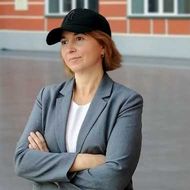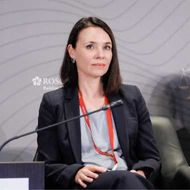- A
- A
- A
- ABC
- ABC
- ABC
- А
- А
- А
- А
- А
- HSE University
- Faculty of Law
- School of International Law
- News
- Interregional Conference “Trends and Prospects of Development of Compliance and Prevention of Legal Risks”
-
School
- About the School
- Research
- Academics
- "HSE University Journal of International Law"
-
Research and Study Laboratories and Groups
-
Research and Study Laboratories
-
Research and Study Groups
-
- Research and Methodology Units
- HSE Research Seminar on International Law
- Ph.D. Seminar
- Undergraduate track ‘International Law’
-
Projects
-
Status: active
- Applied project «Philip C. Jessup international law moot court competition training 2023-2024»
- Applied project 2024-2025 “Preparation for the Willem C. Vis Moot Competition, season 2024-2025”
- Fundamental Research Project "Legal Mechanisms for Overcoming Inequality"
- Participation of Young Lawyers as Clerks of the International Commercial Arbitration Court at the Chamber of Commerce and Industry of the Russian Federation
- Research project: International Competition ‘Dispute Resolution in the EAEU–2024’: Preparation and Participation of the Faculty of Law's Team
-
Status: completed
-
- Staff Members
-
Educational programs
- Bachelor's Programmes
- Master's Programmes
- Doctoral School of Law
Moscow, 3 Bolshoy Trekhsvyatitelsky Pereulok, rooms 227, 228b

E-mail: svetlana.smirnova@hse.ru
Located at a crossroads of global, regional, and national interests, contemporary international law affects almost all spheres of society. The School of International Law keeps pace with significant international events and legal adjudication in order to provide hands-on education that prepares future lawyers and legal scholars for the demands of the current legal landscape. The School is at once a ‘think tank’ that provides expert analysis and a producer of top legal experts and lawyers in international law.
 The Right to Regulate in International Economic Law: Towards a General Theory with Lessons from the GATS
The Right to Regulate in International Economic Law: Towards a General Theory with Lessons from the GATS
Göttingen: Universitätsverlag Göttingen, 2024.
HSE University Journal of International Law. 2025. Vol. 3. No. 1. P. 115-127.
Vladislav Starzhenetskiy, Sabina Geydarova.
In bk.: Новые горизонты международного арбитража. Выпуск 8.. Iss. 8. 2025. Ch. 17. P. 439-461.
 MANDATORY CORPORATE HUMAN RIGHTS DUE DILIGENCE MODELS: SHOOTING BLANKS?
MANDATORY CORPORATE HUMAN RIGHTS DUE DILIGENCE MODELS: SHOOTING BLANKS?
Rusinova V., Sergei K.
Law. LAW. Высшая школа экономики, 2021

Interregional Conference “Trends and Prospects of Development of Compliance and Prevention of Legal Risks”
A great contribution to preparation and conducting of the conference was made by professor S.A. Markuntsov (School of Court Proceedings and Criminal Law) and associate professor S.V. Taut (School of International Law).
The conference was attended by professors and students of the program, as well as colleagues from the Siberian Federal University (Krasnoyarsk), Dorzhi Banzarov Buryat State University (Ulan-Ude), and the Moscow City University of Management named after Yuri Luzhkov.
Conference participants discussed the development of anti-corruption and antitrust compliance, the role of modern information technologies and the regulation of the use and processing of personal data. A separate section was devoted to compliance in the banking and financial sector and anti-money laundering and counter-terrorist financing. Much attention in the presentations was given to protection of state interests and implementation of effective compliance systems in state corporations and companies with Russian Federation participation. A number of presentations provided comparative legal analysis of anti-corruption legislation and law enforcement practice in Russia, Germany, China, Singapore and France.
The conference turned out to be very lively and interesting, with a lot of discussions. The work ended late in the evening in Moscow, and our colleagues from Siberia were past nighttime. It was agreed to discuss a number of issues in the future in separate roundtables and other scholarly events.
- About
- About
- Key Figures & Facts
- Sustainability at HSE University
- Faculties & Departments
- International Partnerships
- Faculty & Staff
- HSE Buildings
- Public Enquiries
- Studies
- Admissions
- Programme Catalogue
- Undergraduate
- Graduate
- Exchange Programmes
- Summer Schools
- Semester in Moscow
- Business Internship
-
https://elearning.hse.ru/en/mooc/
Massive Open Online Courses
-
https://www.hse.ru/en/visual/
HSE Site for the Visually Impaired
-
http://5top100.com/
Russian Academic Excellence Project 5-100
- © HSE University 1993–2025 Contacts Copyright Privacy Policy Site Map
- Edit

